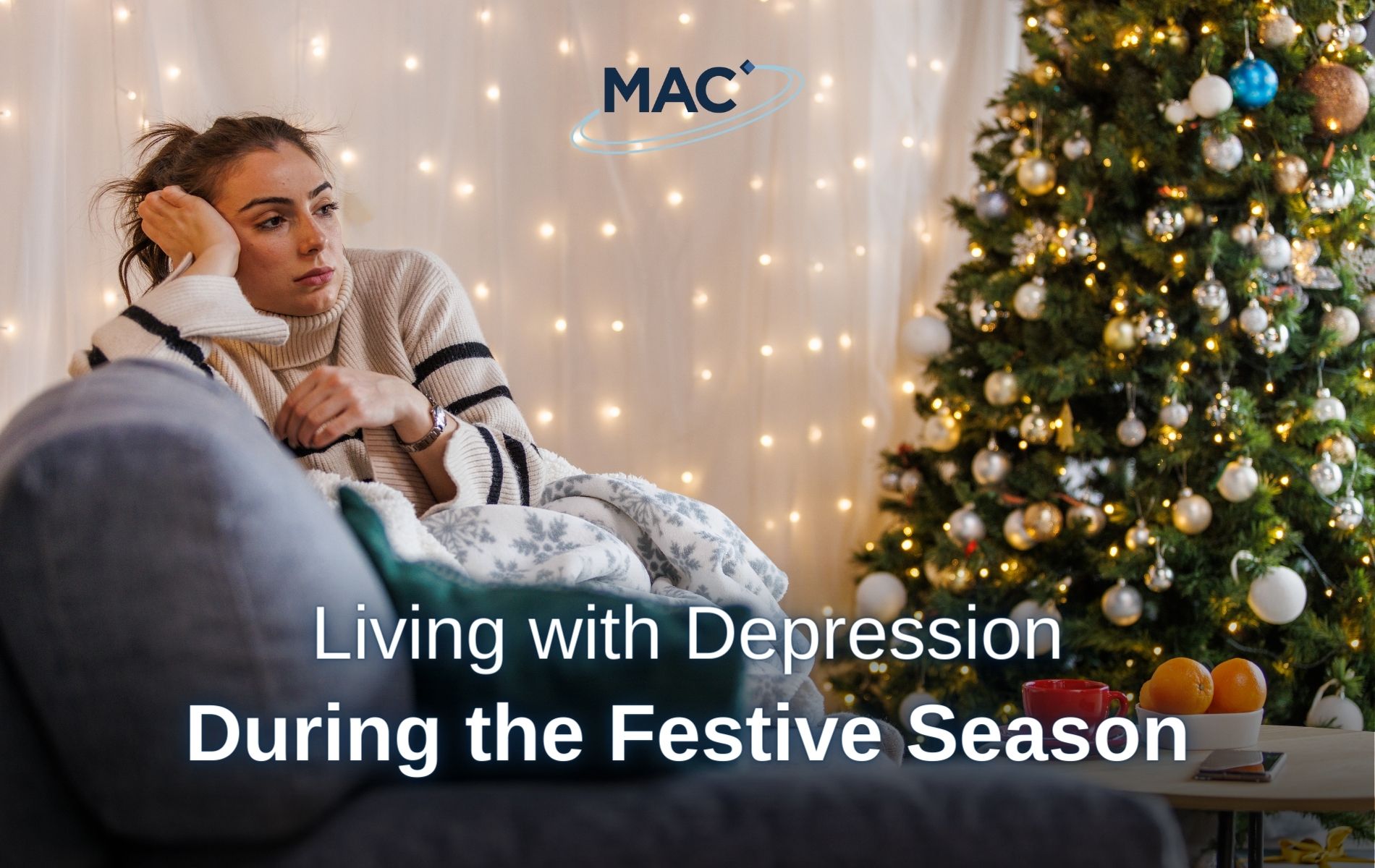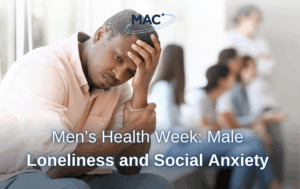Christmas and the festive season are often associated with joy, warmth, and celebration. However, for many who are living with depression, December can be a challenging time with heightened emotional struggles.
What is Depression?
Depression is a mental health disorder. Symptoms include feeling unhappy for long periods of time, feelings of hopelessness, and finding no pleasure in hobbies and interests (anhedonia). Around 1 in 6 adults in the UK stated they have experienced moderate to severe depressive symptoms1.
Why can Depression Worsen at Christmas?
One significant aspect that amplifies the impact of depression during Christmas is the stark contrast between societal expectations and personal experiences. Through television and social media, we are overwhelmed by images of family gatherings and cheerful festivities.
For someone already grappling with feelings of isolation or inadequacy, these portrayals can serve as painful reminders of what they believe they lack. The pressure to conform to societal norms can lead to a sense of failure, worsening the emotional toll on those struggling with depression. Around 17% of people in the UK report that they feel an increased sense of loneliness during the festive period2.
Financial strain is another significant factor that contributes to the worsening of depression during Christmas. The pressure to exchange gifts and partake in expensive festivities can be financially burdensome, especially for those already facing economic challenges. Studies have shown that around 1 in 5 people living with a mental health condition like depression are likely to be in problem debt3, which refers to when a person is unable to pay back the money that they have borrowed.
In a UK survey conducted this year, around 29% of respondents claimed that they were worried about their finances this Christmas4.
The winter season itself can also play a role in exacerbating depression. Seasonal Affective Disorder (SAD), a form of depression influenced by changes in seasons, commonly manifests during the colder, darker months. Around 2 million people in the UK are thought to be affected by SAD5. Although people diagnosed with SAD don’t typically experience depressive symptoms outside of the winter period, the lack of exposure to sunlight during the short winter days could worsen symptoms of depression for those already living with the condition.
How to Manage Depression during Christmas?
One of the most important things someone living with depression can do is to acknowledge and communicate their emotions, with people they trust such as friends, family, support groups, or a mental health professional. These connections can provide a lifeline during challenging times.
Another way of managing depressive symptoms is to establish realistic expectations for the holiday season, based on individual circumstances and without comparison to others. This can help alleviate the pressure to conform to societal norms. Through exploring this, those living with depression may find alternative ways to celebrate such as volunteering; this can also foster a sense of belonging and purpose.
Finally, be sure to make time for self-care. This can include setting boundaries, practicing mindfulness, and prioritizing activities that bring a sense of joy or peace.
Reducing Symptoms of Depression during Christmas
Here at MAC Clinical Research, we are passionate about mitigating symptoms of depression over the festive period, and improving the overall quality of life through researching potential new treatment options for conditions that are not yet well treated. One of the side effects that can worsen as a result of depressive symptoms exacerbating is cognitive impairment.
This lesser-known side-effect that people with depression experience causes difficulties in cognitive functions such as problem-solving, planning, memory, and decision-making. In a study with people living with depression who were taking common antidepressants, 95% of respondents showed no improvements in their cognitive symptoms, and none of the drugs were better than the others at improving cognitive symptoms6.
Clinical Trials for Depression
In an effort to reduce these symptoms, MAC Clinical Research is running a clinical trial for a potential new medication, with an aim of treating symptoms of cognitive impairment in people who have major depressive disorder (MDD). If you are experiencing depression, taking a stable dose of an antidepressant, and experiencing issues with memory, paying attention, or making decisions, you could be eligible for the clinical trial.
If eligible, you’ll receive payment for your time and commitment, reasonable travel expenses, and a full health check-up. For more information, visit our MDD with cognitive impairment research webpage.
If you are living with depression but aren’t currently experiencing cognitive impairment, you can also register for MAC’s other depression clinical trials.
1 Office for National Statistics – Cost of living and depression in adults, Great Britain: 29 September to 23 October 2022
2 Statistica – Thinking about the festive period, to what extent do you agree or disagree with each of the following statements?
3 Money and Mental Health – THE FACTS
4 Go Compare – 1 in 5 say Christmas is going to be financially difficult this year……but festive spending hits a new high for 2023
5 NHS Inform – Beating the Winter Blues
6 The Lancet: Psychiatry – Effect of antidepressant treatment on cognitive impairments associated with depression: a randomised longitudinal study






